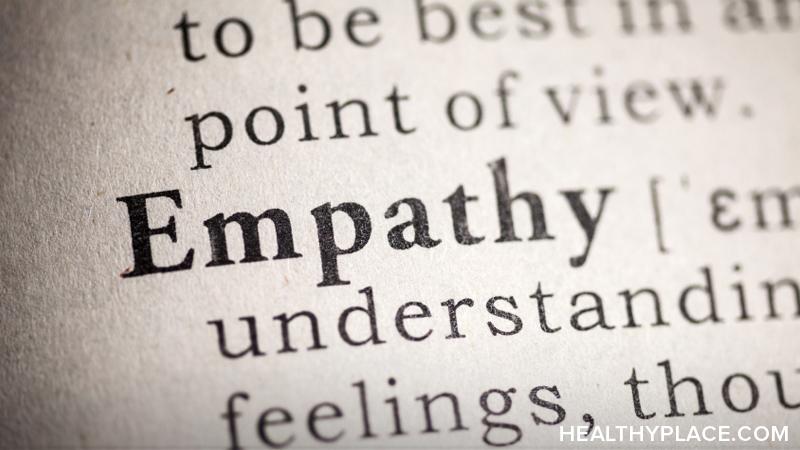When Empathy and Anxiety Occur Together

After years of coping with anxiety and trying to understand it, I've learned that one of the things that affect how I feel is how others feel. In other words, I've found myself quite empathic towards the feelings of others. For me, empathy and anxiety occur together.
Growing up, empathy helped me connect with others, and I would often find myself being the person that friends and acquaintances would turn to when they needed someone with whom they could talk. As a matter of fact, being the confidant amongst my peers led to an interest in psychology in my teens.
But, the downside to this was that being highly sensitive to the feelings of others also meant that I could feel the feelings of others. This is the foundation of empathy. When you are empathic, you are sensitive to the emotions and feelings of others. This might include a wide variety of emotions, including stress and sadness.
When you are an anxious person, this isn't always helpful or comfortable, especially when you are trying to figure out how to manage your anxiety. So, while I often felt this emotional connection with others, my sensitivity, combined with my own anxiety, could sometimes become overwhelming.
How to Manage Your Anxiety and Empathy
In the article "Convergent Neural Correlates of Empathy and Anxiety During Socioemotional Processing" in Frontiers in Human Neuroscience, the researchers discuss the correlation between empathy and anxiety -- high sensitivity and awareness of emotions can be related to an increase in anxiety.1
The problem with this is if you are a highly sensitive person, if someone around you is experiencing sadness or other distressing emotions, you may experience this as well. This becomes even more problematic if you are struggling with anxiety symptoms.
So what can be done in these situations to prevent anxiety from worsening? I've learned that there are some things I can do to manage my anxiety levels while still allowing myself to be empathic toward others.
- Identify feelings. Instead of allowing myself to be completely overrun with emotions, I've found it helpful to take a closer look at what I am experiencing and identify what I am feeling. Is it fear? Is it anger? Is it related to something that I am going through or something that someone else is dealing with? Taking some time to self-reflect can help you analyze your feelings in a way that can lead to either using coping strategies or recognizing that you are carrying the feelings of those around you.
- Set boundaries. I've also learned that when my anxiety levels are high, I am perhaps not in the best place to try to take on the problems of others, let alone the world. It's okay to establish boundaries and not over-extend yourself when you are aware of how emotionally overwhelming a situation can be.
- Boost resilience. This can be accomplished through self-care; attending to my own mental health through getting enough sleep, exercising, eating well, and leaning on my support system. By doing so, when I do experience any stressful feelings in relation to what someone else is feeling, I can apply the other strategies that I have found to be helpful.
Do you find that you are a highly sensitive individual and that it also leads to increased anxiety? If there are strategies that you have found are helpful for coping with empathy and anxiety, share them in the comments below.
Source
- Knight, L. et al., "Convergent Neural Correlates of Empathy and Anxiety During Socioemotional Processing." Frontiers in Human Neuroscience, March 2019.
APA Reference
Bermio-Gonzalez, R.
(2022, May 10). When Empathy and Anxiety Occur Together, HealthyPlace. Retrieved
on 2023, March 24 from https://www.healthyplace.com/blogs/treatinganxiety/2022/5/when-empathy-and-anxiety-occur-together